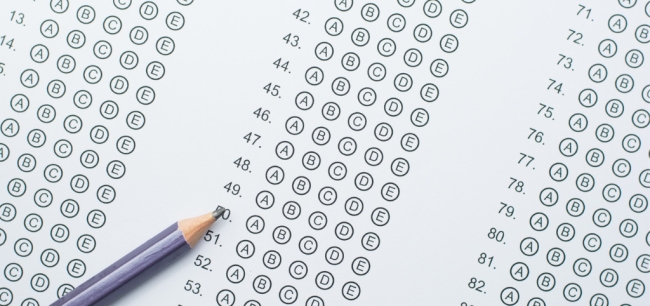You have /5 articles left.
Sign up for a free account or log in.

iStock
For many years, colleges seeking to recruit students have relied on purchasing the names of those who take the SAT or ACT, and who respond to survey questions that test makers attach to the test. Students answer questions about their academic and nonacademic interests. Combined with their test scores and location, this information is very valuable to colleges seeking, for example, more students from California who have math and science interests. The surveys are voluntary, although it's not always clear that students realize that.
In recent years, many states and some school districts have started to require all of their high school seniors (or juniors) to take the SAT or ACT. That means more test takers and, state and local officials hope, higher college-going rates. And it might seem that this change could lead to those conducting surveys in high schools having many more names of would-be college students than in the past.
But not so fast, the U.S. Education Department has said, in new guidance on the privacy rights of high school students and their parents.
The new guidance issued by the department this month said that when individual students do not make the decision on whether to take a standardized test or to fill out a survey, parents must provide consent before a student may fill out a form.
The guidance states that the way students have traditionally signed up to take tests does not raise federal privacy protection issues under such laws as Family Educational Rights and Privacy Act (FERPA), the Individuals With Disabilities Education Act (IDEA), or the Protection of Pupil Rights Amendment (PPRA).
"Traditionally, students have independently registered with testing companies and paid to take college admissions examinations," the guidance states. "Currently, students 13 years or older and parents can register online for these exams. This approach does not raise FERPA, IDEA, or PPRA issues because these testing companies are not acting on behalf of any educational agency or institution, nor are they maintaining any student education records collected as part of the testing process."
But this changes when the students taking the tests haven't had a choice in the matter, the guidance says. And the concern isn't just theoretical, the department analysis says. "We have heard from teachers and students, however, that the voluntary nature of these pre-test surveys is not well understood, and that each of the questions requires a response, and the student must affirmatively indicate in response to multiple questions that the student does not wish to provide the information," the guidance says.
As a result, parental permission is generally required.
The guidance notes that while it was written with standardized tests in mind, it could apply to some other surveys that are distributed in high schools to gather information to help colleges in recruitment.
An analysis from the Future of Privacy Forum suggests that the guidance could be quite important. "The technical assistance -- designated as 'significant guidance' -- … demonstrates that the stakes are high for companies offering college admission testing to students and the schools that rely on them. Although financial penalties are rare, USED has other enforcement options if a school acts in a way that is inconsistent with the law, such as imposing a five-year ban on data transfers."
A spokeswoman for the College Board said that the organization was still studying the guidance.




